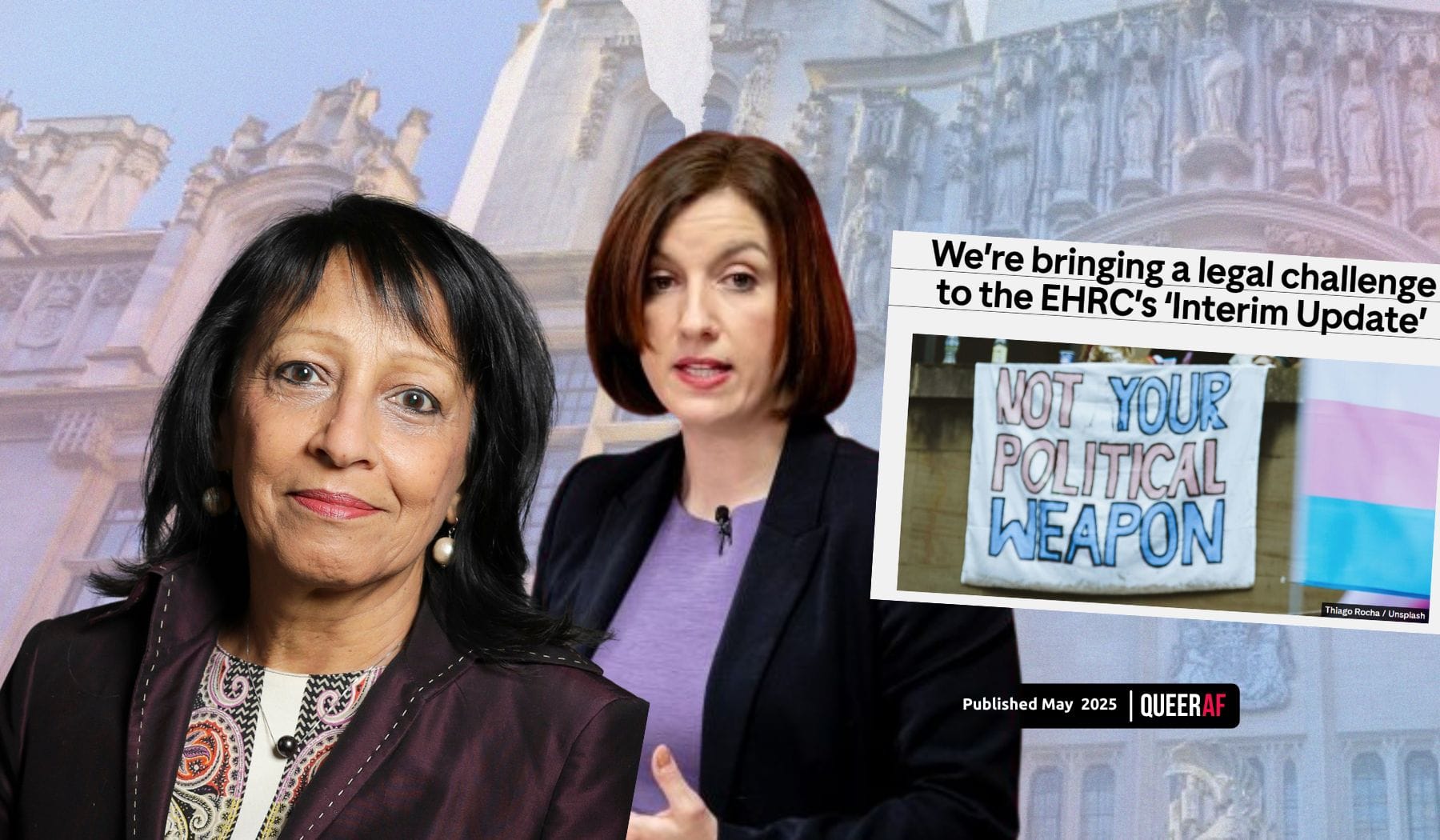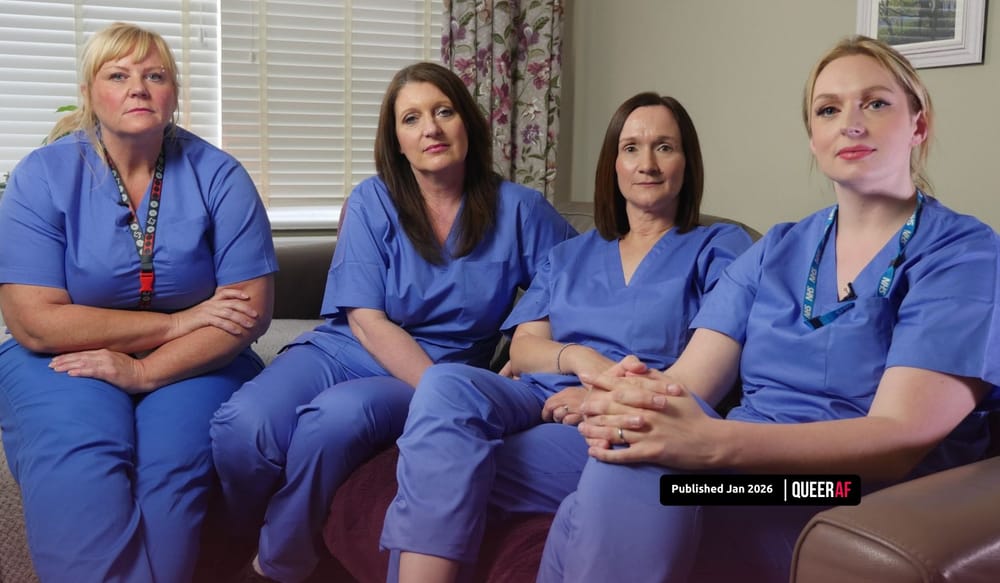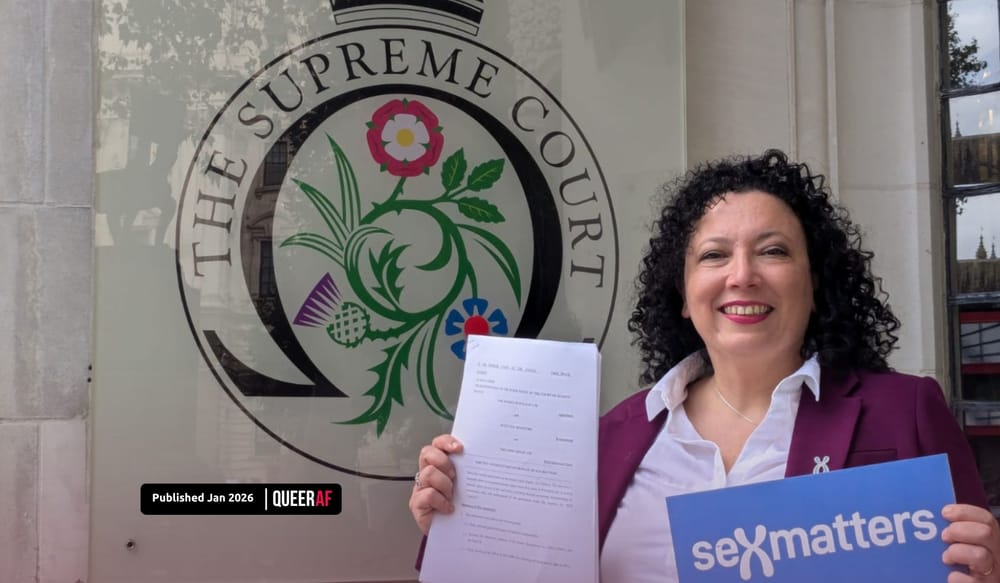TL;DR: Advocacy group The Good Law Project and a group of transgender and intersex people are suing the Equality and Human Rights Commission (EHRC) and the Minister for Women and Equalities. They’re bringing a judicial review that will challenge the regulator’s stance on segregating Trans+ people from some single-sex spaces.
A number of trans and intersex people are suing the Equality and Human Rights Commission (EHRC), and the Minister for Women and Equalities, Bridget Phillipson.
Advocacy group The Good Law Project is supporting the action, which will see the group bring a judicial review - a protocol that requires a response within 14 days - Good Law Project
The claimants will argue that an interim update issued by the EHRC, which instructs single-sex service providers to segregate Trans+ people into 'third spaces', "is either wrong in law or, if right, breaches the UK’s obligations under the Human Rights Act 1998".
In a video, Good Law Project founder and director Jolyon Maugham says that they don't believe the EHRC statement, which came following the Supreme Court ruling on the definition of ‘woman’ in the Equality Act 2010, complies with the law:
"We think they've massively overstated the case, so we'll be asking the High Court to declare the statement unlawful and force the EHRC to withdraw it."
What was the EHRC’s interim update?
The review will focus on the legality of the EHRC's 'update' to guidance on single-sex provisions, which was released late on a Friday night, barely a fortnight after the Supreme Court ruling.
It released this non-binding update, presented as guidance, to much confusion and alarm to the Trans+ community and organisations who manage single-sex provisions. The review will challenge the process of this release and whether it was legal.
The action is based on what the claimants say is a misinterpretation of the impact of the Supreme Court ruling, which only affected the Equality Act. A significant part of their argument will set out that this ruling doesn't apply to other parts of the law - specifically, those that deal with toilets, workplaces and other single-sex spaces.
The intersex claimant will also require the Minister and EHRC to explain what spaces intersex people should use and how that stance complies with the law.
What happens next?
Maugham says that even if the High Court finds that the process behind the EHRC’s action and the update itself are lawful, that won't be the end of the road for the action.
If that happens, he says the group will ask the High Court to declare that the UK is no longer complying with its obligations under the European Convention on Human Rights, which, he adds, would make the UK a "rogue state". In a statement to QueerAF, he went on:
“The stark and needlessly cruel position adopted by the government and the EHRC humiliates trans people by forcing them to use the wrong toilets and obliges them to reveal deeply personal information about their gender to complete strangers just to take a wee. It is deeply unkind, far removed from the national mood of mutual respect and live and let live, and is unlawful to boot.”
The Good Law Project says they will withdraw the action if the EHRC and Equalities Minister withdraw their ‘guidance’ and change their position.
This week, the EHRC announced a consultation on the update will be launched on Monday. It will be open for six weeks, extended from two weeks after concerns were raised in the House of Commons - The Guardian
Analysis: A community responds, and legal action begins
The Good Law Project has raised vast sums of money in crowdfunding from the LGBTQIA+ community and its allies since they announced they'd spearhead legal action to fight back against the Supreme Court ruling. This is the first part of that activity.
This action is a judicial review. It is a type of court proceeding in which a judge reviews the lawfulness of a decision or action made by a public body.
Generally speaking, that means judicial reviews are a challenge to the way in which a decision has been made rather than the rights and wrongs of the conclusion reached. In this particular case, however, the impact will question the validity of the update's conclusion - at least until the EHRC can get its legal ducks in a row to re-release a new version with a similar impact.
However, even if it is found to have acted legally, the next challenge in the high court - declaring the UK at odds with the European Convention of Human Rights - will escalate the already announced challenge by Dr Victoria McCloud in taking the Supreme Court to the European Court of Human Rights.
In the face of great adversity, and especially after the Supreme Court ruling, many of the Trans+ friends, colleagues and family I know felt hopeless. This action, however, is a reminder to us all that the legal approach is not over. Indeed, the fight back against the ruling has more than begun; it’s in full swing.

We face an acute period ahead of us in our community:
A time where people who hate us are feeling more and more enabled to share, spread and communicate those attitudes.
In this period of uncertainty, you can trust QueerAF to be here - in your inbox every Saturday, to ensure you have all the latest information you need to navigate the changes, and to know how to fight back.
The kind of journalism we do week in week out, goes far beyond writing the 4000 words in this newsletter every week, or spending all week newsgathering. It requires us to build relationships with queer organisations, advocacy groups and with activists to ensure our ears are on the ground, and that we can connect the dots - so you're better equipped for the fight ahead.
QueerAF is a small team; for now, I'm the only one who works here full time and on top the news I do, I work with our network of contributors, mentees on our training schemes and freelance staff - to ensure we punch above our weight. We're both small and mighty.
But I'll level with you: we need your help. QueerAF's largest source of revenue is from people like you. That's by design. We've refused ads in this newsletter because it keeps us focused on what counts, not what clicks. It helps us stay grounded with what the community needs.
If you can, please join the hundreds of other QueerAF members who ensure our small but mighty newsletter, can take on the mainstream media and deliver you the information you need for the fight ahead.










